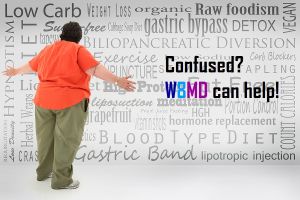Overnutrition
W8MD's Free E-book on obesity and weight loss
Overnutrition, also known as overfeeding, is a medical condition that results from an excessive intake of nutrients, particularly energy, protein, and fat. Overnutrition can lead to obesity and a variety of related health problems, such as type 2 diabetes, cardiovascular disease, and some types of cancer.
Causes of Overnutrition
- Overnutrition is primarily caused by a prolonged imbalance between energy intake and energy expenditure. In other words, consuming more calories than the body needs over a period of time can lead to overnutrition. The following factors can contribute to overnutrition:
- High-Calorie Diets: Consuming a diet that is high in calories, particularly from sugar, saturated and trans fats, and refined carbohydrates, can lead to overnutrition.
- Portion Sizes: The increased availability of large portion sizes, particularly in fast food restaurants and other food establishments, can contribute to overnutrition.
- Sedentary Lifestyle: Lack of physical activity or a sedentary lifestyle can contribute to overnutrition. When the body is not using the energy from food through physical activity, excess calories are stored as fat.
- Genetics: Genetic factors can contribute to overnutrition. Some people may have a higher genetic susceptibility to gaining weight or developing obesity.
Consequences of Overnutrition
- The consequences of overnutrition can be severe and include a range of health problems, such as:
- Obesity: Overnutrition is a leading cause of obesity, which can lead to a range of related health problems, including type 2 diabetes, cardiovascular disease, and some types of cancer.
- Type 2 Diabetes: Overnutrition can lead to insulin resistance, a condition in which the body's cells become resistant to the effects of insulin, a hormone that regulates blood sugar levels. This can lead to type 2 diabetes.
- Cardiovascular Disease: Overnutrition can lead to the accumulation of excess fat in the body, which can increase the risk of developing cardiovascular disease, such as heart attacks and stroke.
- Cancer: Overnutrition is associated with an increased risk of some types of cancer, including breast, prostate, and colon cancer.
Prevention and Treatment
- Preventing and treating overnutrition requires a combination of dietary changes, increased physical activity, and behavioral interventions. Some strategies for preventing and treating overnutrition include:
- Balanced Diet: Consuming a balanced diet that is rich in fruits, vegetables, whole grains, and lean proteins can help prevent overnutrition.
- Portion Control: Controlling portion sizes and avoiding large portion sizes can help prevent overnutrition.
- Physical Activity: Regular physical activity can help prevent overnutrition and promote weight loss.
- Behavioral Interventions: Behavioral interventions, such as cognitive-behavioral therapy, can help individuals develop healthy eating habits and promote physical activity.
Overnutrition is a serious health concern that can lead to a range of related health problems, including obesity, type 2 diabetes, cardiovascular disease, and cancer. Preventing and treating overnutrition requires a combination of dietary changes, increased physical activity, and behavioral interventions. A balanced diet, portion control, regular physical activity, and behavioral interventions can help prevent and treat overnutrition.
Also see
- W8MD's Free E-book on Obesity and Weight Loss
- Overweight / obesity - causes (insulin resistance - stress - lack of physical activity
- Childhood obesity - abdominal obesity - weight gain
- Weight loss - bariatric surgery - anti-obesity medications
- Obesity and walking - obesity and the environment - obesity and sexuality
- Fat fetishism - overnutrition - diets - VLCD diet - meal replacements - weight loss supplements
Transform your life with W8MD's budget GLP1 injections from $50.00^
W8MD Weight Loss, Sleep & Medspa Centers is a network of medical centers located in New York, and Pennsylvania, that provide comprehensive care for weight loss, sleep disorders, and aesthetic treatments. We can obtain insurance prior authorizations when coverage available.
Book appointments
Locations
W8MD location(s):
- NYC weight loss: NYC medical weight loss, sleep and medspa: 2632 E 21st St., Suite L3, Brooklyn, NY 11235 Contact: (718)946-5500
- Philadelphia weight loss - 1718 Welsh Road, 2nd Floor, Ste C, Philadelphia, PA 19115 (215)676-2334
- W8MD's Weight loss diet - Recipes (WikiMD)
- Links: Weight loss | Sleep medicine | Medical spa | Nutrition | Success stories |
- Diet pills: Phentermine, Phen/Topiramate, Wegovy, Saxenda, Zepbound, Mounjaro, Contrave, Diethylpropion etc.
- Resources: W8MD diet | Keto diet guide | Free Ebook | 12 Ways to lose weight quickly | 8 Amazing Weeks
- Tags:NYC medical weight loss, Philadelphia lose weight, Zepbound NYC, Budget GLP1 weight loss injections, Wegovy Philadelphia, Wegovy NYC, Philadelphia medical weight loss, Brookly weight loss and Wegovy NYC
![]()
![]()
![]()
![]()
You can now request appointments by text for all existing patients! Simply send your name, date of birth, and preferred date, location & time to Havila at (718) 207-7411.
- ^ Our budget compounded Semaglutide starts from weekly from $50 and up and Tirzepatide from $65.00 and up weekly with insurance. Self pay patients add $50.00 weekly visit fee.
- The prices are for starting dose only and will go up based on the dose. Insurance copays, deductibles and program fees may apply! Individual results may vary.



